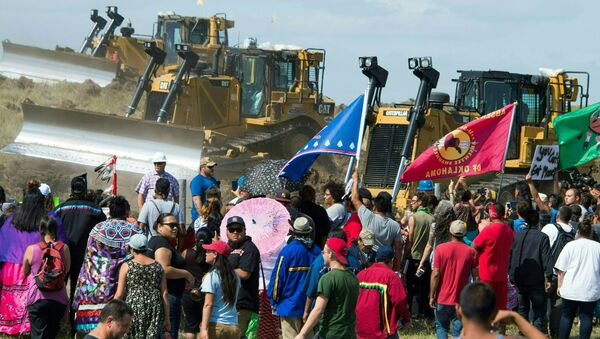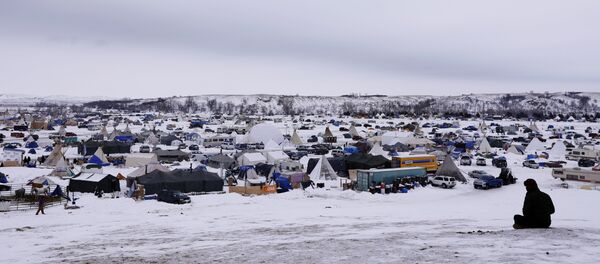A statement from the governor’s office read, "Warm temperatures have accelerated snowmelt in the area of the Oceti Sakowin protest camp, and the National Weather Service reports that the Cannonball River should be on the watch for rising water levels and an increased risk of ice jams later this week. Due to these conditions, the governor’s emergency order addresses safety concerns to human life as anyone in the floodplain is at risk for possible injury or death."
The deadline in Burgum’s executive order coincides with the date set by the US Army Corps of Engineers, and claims that the continued presence of the demonstrators will have a negative impact on the environment.
Since summer 2016 the Standing Rock Sioux Tribe, activists and other Native American groups have been attempting to halt the construction of the multi-billion dollar pipeline, saying that the project will poison the water supply and desecrate sacred lands.
On Monday a federal judge denied a request from the tribal ‘Water Protectors’ attempting to keep the last link of the cross-state pipeline from being completed under sensitive ecological habitats. Last week the Corps of Engineers granted a final easement to the pipeline’s chief builders, Texas-based Energy Transfer Partners (ETP).
ETP said in a statement, "With this action, Dakota Access now has received all federal authorizations necessary to proceed expeditiously to complete construction of the pipeline."
The hotly-disputed pipeline was left in limbo after outgoing US President Barack Obama took a "wait and see" approach to the issue in the final days of his administration. In January President Donald Trump signed executive orders giving the greenlight for companies to re-submit applications and continue construction.
This is considered a setback to activists attempting to stop the pipeline, as they face plummeting temperatures and consistent police abuse. Standing Rock Sioux Chairman Dave Archambault II said, "Americans know this pipeline was unfairly rerouted towards our nation and without our consent. The existing pipeline route risks infringing on our treaty rights, contaminating our water and the water of 17 million Americans downstream."




